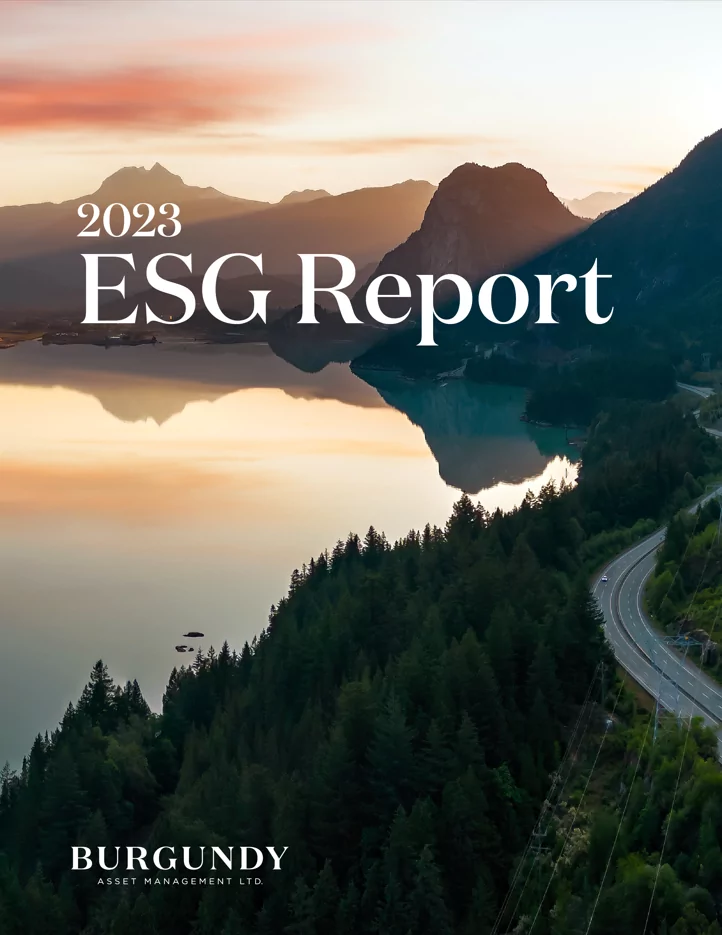Sustainable Investing
Guided by the goal of protecting and growing your capital over the long term.

Integration
At Burgundy, we take an ESG integration approach in our investing. This involves incorporating material environmental, social, and governance (ESG) considerations in our investment process and decision making.
Our investment process is centered on rigorous due diligence of the companies that we evaluate. Through this process we identify and assess factors, including ESG risks and opportunities, that are material to the long-term value of those companies.
Our consideration of ESG factors is limited to their impact on the intrinsic value of the companies, and the pursuit of superior long-term risk adjusted returns for our clients.

2023 ESG Report
Read our 2023 report to learn more about Burgundy’s ESG Integration and Corporate Sustainability activities over the past 12 months. Highlights include an update on our portfolios’ carbon emissions, key takeaways from Burgundy’s engagement with Nestlé, observations on China’s electric vehicle market, and a summary of our DEI and philanthropic initiatives.

